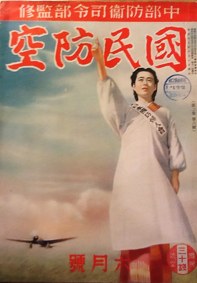On the Transnational Destruction of Cities: What Japan Learned from the Bombing of Germany and Britain in World War II
Vortrag von Prof. Dr. Sheldon Garon, Princeton University
- https://www.iaaw.hu-berlin.de/de/region/ostasien/seminar/mori/veranstaltung/vortrag/on-the-transnational-destruction-of-cities
- On the Transnational Destruction of Cities: What Japan Learned from the Bombing of Germany and Britain in World War II
- 2014-02-13T18:00:00+01:00
- 2014-02-13T20:00:00+01:00
- Vortrag von Prof. Dr. Sheldon Garon, Princeton University
- Wann 13.02.2014 von 18:00 bis 20:00
- Wo Mori-Ôgai-Gedenkstätte, Luisenstr. 39, 10117 Berlin
-
iCal
How did it become “normal” to bomb cities and civilians? Focusing on the aerial bombardment of Japan in 1945, Prof. Garon spotlights the role of transnational learning in the construction of the “home front” in all the belligerents. Not only did each power seek to destroy the enemy’s home front and civilian morale, but they also studied each other’s efforts to defend their own civilians from the air war. It was Japan’s fate to suffer the war’s most lethal firebombing, based on what Germans and Allies had learned by bombing the enemy’s cities.

Sheldon Garon is the Nissan Professor of History and East Asian Studies at Princeton University. A specialist in modern Japanese history, he also writes transnational history that spotlights the flow of ideas and institutions among the U.S., Japan, and European and Asian countries. His new book, Beyond Our Means: Why America Spends While the World Saves, examines what Americans might learn from European and East Asian nations whose public policies have vigorously encouraged citizens to save over the past two centuries. The book has received media attention from NPR, BBC, New York Times, The Guardian, Financial Times Deutschland, Asahi Shinbun, and The Australian. Previous publications include The State and Labor in Modern Japan (University of California Press, 1987); Molding Japanese Minds: The State in Everyday Life (Princeton University Press, 1997); and The Ambivalent Consumer: Questioning Consumption in East Asia and the West (Princeton University Press, 2011). He is currently writing a transnational history of “home fronts” in Japan, Germany, Britain, and the United States in World War II.

